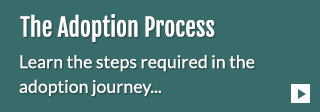Frequently Asked Questions Answered in Coaching Services

1. What is adoption?
Adoption is defined on three grounds:
A) Medical Procedure or adaptability of children; the desired result of any adoption is to have the child and adoptive parents bond together as naturally as possible. However, it is not always possible for every child or every adoptive parent to bond together. Adoption therefore can be defined as a medical procedure based on clearly defined risk factors. This fact is noted in the terminology of adoption when the child is said to be "matched” with the parents.
B) Legal Procedure or policy and laws; in the child’s birth country and the homeland of perspective adoptive parents that will govern the adoption. Therefore adoption becomes the legal process of uniting child and adoptive parents while first protecting the rights of that child’s birth parents. Today, all international adoptions are done under international laws such as the Hague Treaty and the International Adoption Act.
C) A Forever Child: or the reality that the adjustment to adoption never really ends. Most adoptions have some legally required Post Adoption Procedures that can monitor the child’s immediate adjustment into the adoptive family and visa versa. However most professionals agree that adjustments for child and family observed in adoptions have many different phases over time having both long and short-term effects. This is why adoptive families are encouraged to start a "life book as early into the adoption procedure as possible.
2. Who are the children available for adoption?
-
Infants, toddlers and children of all ages are available for adoption.
-
Most of these children come from orphanages.
-
Majority of times these children are abandoned by biological parents for socio-economic reasons and are called 'social orphans'.
-
All the background information and health history is made available to parents. Such as test results on the HIV, Hepatitis, Tuberculosis etc.
3. Who can adopt?
Eligibility criteria for parents differ according to the country they are adopting from. That being said, most programs consider the following factors:
-
Age of both parents
-
Health of parents
-
Socio-economic background
-
Marital status
-
Length of marriage
-
Number of biological children
-
Home study approval and recommendation
-
Ability to provide required documentation meeting foreign requirements
4. What is the adoption procedure?
Please see the the 20 Step procedure of general procedure.
5. How long do we have to wait?
While every program is different, the average wait time for overseas adoption for Canadians is 24 months once the file has been sent overseas. This is a variable question and TEARS Coaching can provide more information upon request.
6. How much does it cost?
Cost of adoption varies from country to country and all parents need to consider the cost in terms of Time, Money and Emotion. This can be further defined for a specific country in discussion with TEARS Coaching.
7. Do we have to travel overseas for adoption?
Some programs require adoptive parents to be physically present during certain aspects of the adoption. Usually that requires at least one trip to conclude the adoption in a court in the foreign country and it demands both parents be present. Each country has varying lengths of time that parents need to stay and some require more than one trip. TEARS Coaching on this topic will help in planning what country best suits your families ability in traveling or length of stay overseas.
8. Are inter-country adoptions open or closed?
Depends on the country of origin of the child, some countries allow open adoption where as some of them have strong reservations on the open adoptions. It is therefore subject to the country you chose. TEARS Coaching advise will help define this question in advance of applying to a country.
9. Can special needs or partially handicapped parents adopt a child?
Each case is reviewed individually, and a specific adoption plan will be outlined once an application is accepted by a Provincial ministry for that will approve the home study. While laws do not prohibit persons with disabilities from adopting, there might be reservations on accepting these parents in the country of the child's origin. Persons in this situation should seek TEARS Coaching well in advance of any application to an agency or before starting a home study.
10. How can we learn more about adoptions?
Explore our Web Links page to connect with other helpful resources.


